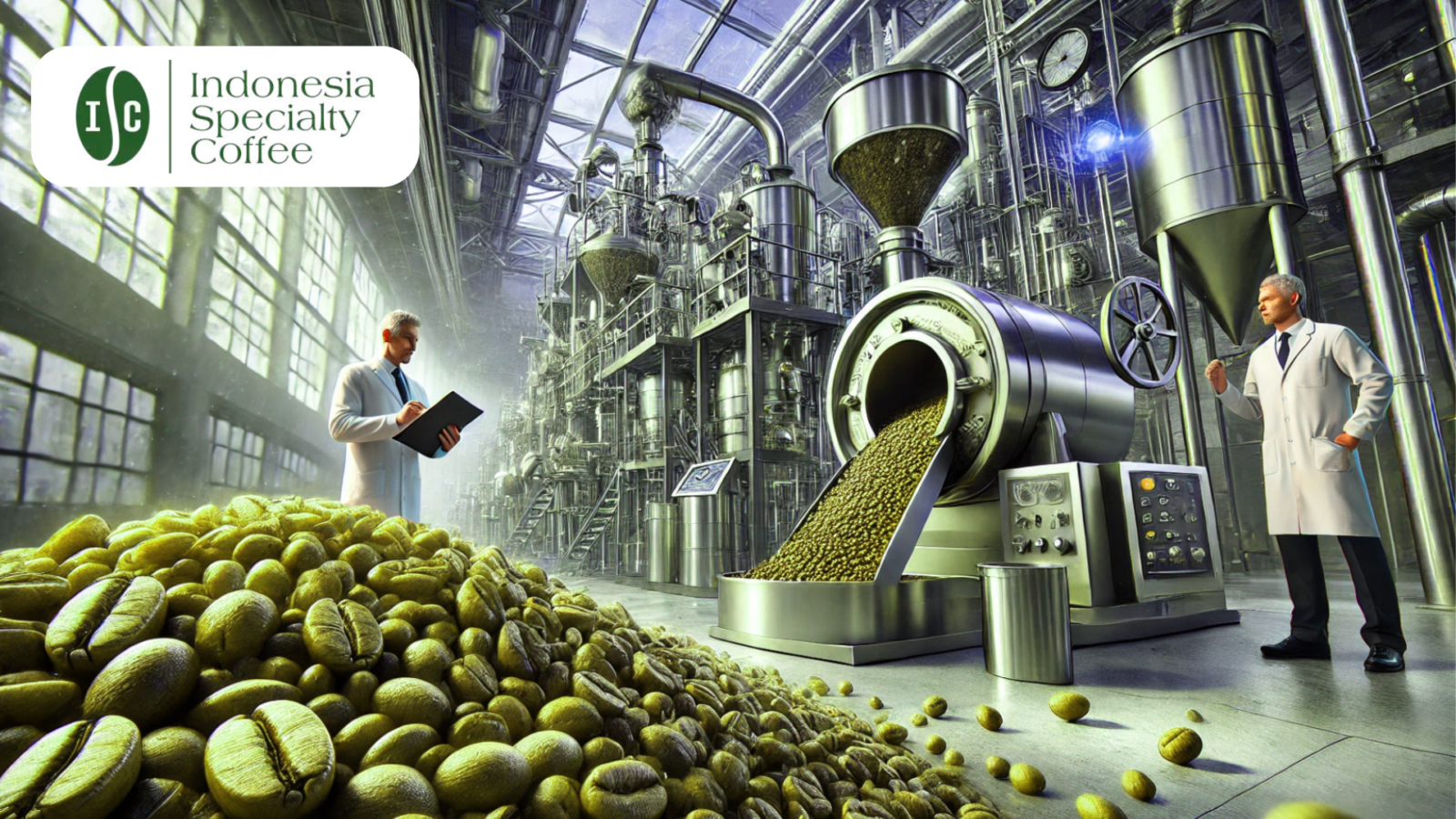Minerals in Coffee, the beloved beverage that fuels mornings and fuels conversations, boasts more than just a caffeine kick. Beyond the stimulating jolt, a hidden world of minerals resides within each cup, playing a crucial role in both our health and the brewing process itself. This article delves into the four main minerals found in coffee – potassium, magnesium, calcium, and phosphorus – exploring their importance for our bodies and their fascinating impact on the chemistry of brewing.
Table of Contents
Essential Elements: Unveiling the Power of Minerals in Coffee
While coffee is primarily known for its caffeine content, it also harbors a treasure trove of essential minerals. These minerals, present in relatively small amounts, are crucial for various biochemical processes in the human body. Let’s delve deeper into the four main mineral players:
- Potassium: This champion mineral is vital for maintaining healthy blood pressure and proper muscle function. A single cup of brewed coffee can provide approximately 8% of the daily recommended intake of potassium.
- Magnesium: This superstar mineral is involved in over 300 biochemical reactions in the body, including energy production, muscle function, and nervous system regulation. Coffee contributes a smaller amount of magnesium compared to potassium, but it still offers a valuable dietary source.
- Calcium: The foundation of strong bones and teeth, calcium also plays a role in muscle function, blood clotting, and nerve transmission. While not as abundant as potassium or magnesium, coffee offers a slight contribution towards daily calcium needs .
- Phosphorus: This versatile mineral is essential for bone health, energy production, and cell signaling. Coffee provides a small amount of dietary phosphorus, complementing other dietary sources .
It’s important to note that the exact mineral content in coffee can vary depending on factors like bean origin, processing methods, and brewing techniques. However, all coffee beans naturally contain these minerals, making coffee a potential contributor to a balanced diet.
Beyond the Body: How Minerals Influence Coffee Chemistry
The story of minerals in coffee extends beyond their health benefits. These tiny powerhouses significantly impact the water chemistry during brewing, ultimately affecting the extraction process and the final flavor profile of your cup. Here’s how each mineral plays a role:
- Calcium and Magnesium: These minerals, often referred to as “water hardness,” can significantly impact coffee extraction. Hard water, with high levels of calcium and magnesium, can impede the extraction of desirable coffee solubles, leading to a flat and under-extracted cup. Conversely, soft water, lacking these minerals, can over-extract, resulting in a bitter and astringent brew. Finding the sweet spot in water hardness is crucial for optimal coffee extraction.
- Potassium and Sodium: While not as prominent as calcium and magnesium, these minerals also influence extraction. Potassium, like calcium and magnesium, can slightly hinder extraction, while sodium can enhance sweetness perception. However, their overall impact is less pronounced compared to the water hardness duo.
Understanding how minerals interact with water is key to achieving a perfectly balanced cup. Many coffee enthusiasts recommend using filtered or bottled water with a medium hardness level for optimal extraction. Experimenting with different water sources can help you discover the perfect water chemistry for your preferred brewing method and coffee bean.
Brewing Magic: Harnessing Minerals for Optimal Flavor
The interplay between minerals and coffee brewing presents an exciting opportunity for coffee enthusiasts to elevate their coffee experience. Here are some tips to leverage the power of minerals:
- Experiment with Water Hardness: If your tap water is particularly hard, consider using a water softener or using filtered water with a lower mineral content. Conversely, if your water is very soft, adding a pinch of baking soda (sodium bicarbonate) to your brewing water can help improve extraction and enhance sweetness perception.
- Choose Your Brewing Method Wisely: Pour-over methods are more susceptible to water hardness variations compared to full immersion methods like French Press. If you have hard water, consider immersion brewing for a more forgiving extraction.
- Explore Third-Wave Techniques: Techniques like using a bypass in your pour-over or adjusting grind size based on water hardness can help fine-tune extraction and achieve a more balanced cup.
By understanding how minerals influence water chemistry, coffee lovers can unlock a new level of control in their brewing routine. With a little experimentation, you can harness the power of minerals to craft coffee that perfectly suits your taste buds.
Beyond the Basics: A Deeper Dive into Mineral Interactions
The world of coffee minerals is a fascinating one, with ongoing research exploring their nuanced interactions and potential health benefits. Here are some additional points to consider:
- Mineral Synergy: The combined effects of various minerals in coffee can be more significant than their individual contributions. For instance, the presence of potassium can mitigate the negative effects of high calcium or magnesium content on extraction.
- Mineral Roasting Impact: Roasting can influence the mineral content of coffee beans. Lighter roasts tend to retain more minerals compared to darker roasts, which may experience some mineral loss during the extended roasting process. This can contribute to the subtle taste differences between light and dark roasts.
- Health Benefits Beyond Minerals: While minerals play a significant role, coffee boasts a range of other health-promoting compounds like antioxidants and chlorogenic acid. These contribute to the potential benefits of coffee consumption, such as improved cognitive function and reduced risk of certain diseases
Beyond the Basics: A Deeper Dive into Mineral Interactions
- Mineral Roasting Impact: Roasting can influence the mineral content of coffee beans. Lighter roasts tend to retain more minerals compared to darker roasts, which may experience some mineral loss during the extended roasting process. This can contribute to the subtle taste differences between light and dark roasts.
- Health Benefits Beyond Minerals: While minerals play a significant role, coffee boasts a range of other health-promoting compounds like antioxidants and chlorogenic acid. These contribute to the potential benefits of coffee consumption, such as improved cognitive function and reduced risk of certain diseases
Responsible Sourcing: Minerals and Sustainability
The journey of minerals in coffee extends beyond the brewing process. Coffee cultivation practices can significantly impact the mineral content of beans. Here’s how responsible sourcing plays a role:
- Soil Health and Mineral Availability: Healthy, well-managed coffee farms promote soil health, leading to beans rich in essential minerals. Sustainable practices like organic farming and proper soil management contribute to a balanced mineral profile in coffee beans .
- Environmental Impact: Excessive use of chemical fertilizers can disrupt the natural mineral balance in soil, potentially leading to an imbalance in coffee beans. Sustainable farming methods that minimize chemical inputs help preserve the natural mineral profile and protect the environment.
By choosing responsibly sourced coffee, consumers can not only support their own health but also contribute to sustainable farming practices that benefit the environment and coffee-producing communities.
Conclusion: Minerals – The Unsung Heroes of Coffee
Minerals, often overlooked in the world of coffee, play a vital role in both our health and the brewing process. They contribute essential nutrients to our diet and significantly impact water chemistry during brewing, influencing the final flavor profile of our coffee. Understanding how minerals interact with water empowers coffee lovers to experiment with brewing techniques and water sources, ultimately crafting a cup that perfectly suits their taste preferences. As research continues to explore the intricacies of coffee minerals, we can expect even more exciting discoveries about their potential benefits and the fascinating world of coffee chemistry. So, the next time you savor a cup of coffee, take a moment to appreciate the hidden power of minerals, the unsung heroes that contribute to a delicious and health-promoting beverage.








